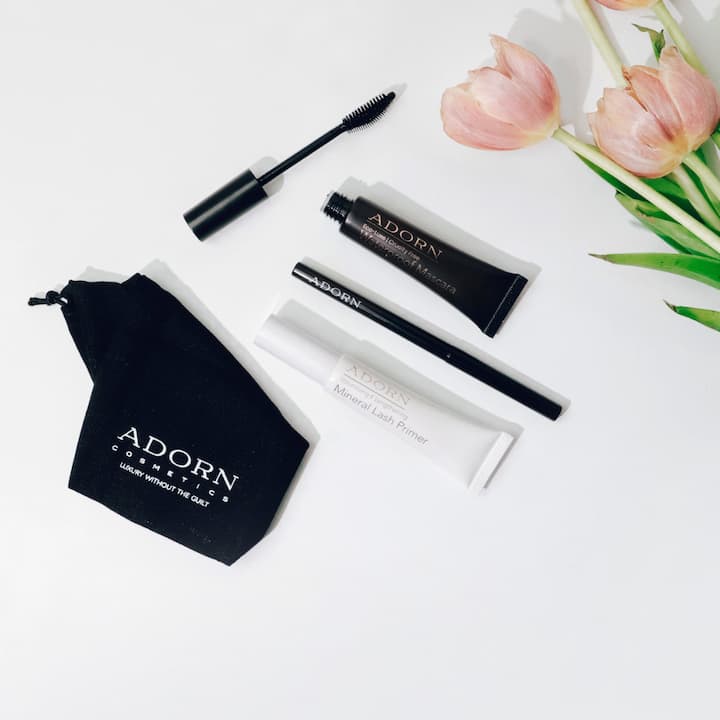A Guide to Natural Mascaras for Sensitive Eyes
If you’re like many women, leaving the house without applying at least one coat of mascara is something that doesn’t even come to your mind. We want our eyelashes to be the thickest, longest, and darkest they can be. We want people to notice how stunning our eyes are and want them to stand out. The quickest and least expensive technique to achieve significant effects without investing a lot of time or money is using mascara.
Nonetheless, some of us find it challenging to apply mascara because of our delicate eyes. Certain mascaras have chemicals that cause irritation, resulting in itching and burning. Cosmetics manufacturers are aware of our worries and have created several varieties of mascara for sensitive eyes. We are not required to leave the house with barely perceptible lashes. You too can display lusciously long, dark lashes.
What Qualities Should Mascara for Sensitive Eyes Have?

Whether you have sensitive eyes or are prone to adverse responses to cosmetics, it’s essential that you chose a mascara that won’t irritate your eyes. The natural moisture in your eyes can easily mix with mascara, making them itch and ache. To pick the best mascara for you, first check to see if there are any ingredients in mascaras to which you are allergic or sensitive, and steer clear of such items.
You might want to consider wearing natural mascaras if you have concerns about specific cosmetics ingredients. Although natural mascara makeup is not necessarily hypoallergenic, it is formulated with less or more naturally derived substances that won’t likely irritate the eyes.
Manufacturers of cosmetics frequently combine natural ingredients like sunflower oil, beeswax, and carnauba wax to make mascaras that are water-resistant, soothing, and amazingly efficient at raising lashes. The earth mineral pigments used in natural mascara frequently provide lashes with a long-lasting covering of colour that quickly lengthens and defines them. Natural mascaras provide great volume because of cellulose microspheres made of biodegradable plant material.
If you’re feeling that your eyelashes are a little dry and brille or are frequently falling out, a natural mascara formulated with Vitamin E may help to restore strength and promote healthy lash development. It may be necessary to try more than one type of mascara in order to find the best one for you.
If you have an allergy, hypoallergenic mascara might be a better option for you. Note that “natural” or “organic” products aren’t necessarily hypoallergenic. The label “hypoallergenic” will often be prominently displayed on the packaging. Because it has been properly evaluated by a dermatologist and won’t contain any potential irritants, choosing hypoallergenic mascara for sensitive eyes is often a wise decision, even if you are not allergic to anything.
Hypoallergenic and natural mascaras can be found in many drugstores or online; be sure to carefully read the packaging so you are aware of exactly what you are purchasing.
How to Apply Mascara to Sensitive Eyes?
Just as dermatologists advise you to try new hair dye or depilatory products on a tiny area of skin to check if you have a response before using them, do the same thing with your mascara. Swipe your outer lashes lightly, then wait a few hours. Feel good? Then finish up a full application.
For those who have sensitive eyes, applying mascara as closely as possible to the lash roots can be highly upsetting. Instead, use a gentle zigzag motion with your mascara wand to coat only the centre and tips of your lashes. this raises the lashes without interacting with the root, lessening the chance that your mascara may irritate the sensitive skin around your eyes.
How to Remove Mascara from Sensitive Eyes?

A healthy skincare habit you should adopt is to always remove your mascara at night. Sleeping with eye makeup on can dry out the skin around your eyes, increasing their susceptibility to itch and pain.
It’s crucial to select a makeup remover specifically formulated for sensitive eyes as well. One or two swipes of a cotton ball or makeup removal pad soaked in the makeup remover solution should be sufficient to completely remove all of the mascara. It shouldn’t be necessary to touch, pull, or tug on the eyes.
Micellar water has been gaining in popularity lately, and it’s particularly beneficial for those with sensitive skin. What sets it apart from other makeup removers is that it contains tiny oil molecules, or micelles, which act like magnets to attract and dissolve the mascara. It’s gentle enough for even the most sensitive eyes, with no need for rubbing or rinsing.
How Often Should You Change Your Mascara?
Ideally, you should replace your mascara every three months. This is a general recommendation, but people with sensitive eyes should pay particular attention. Mascara is known for harbouring bacteria, so it is best to replace it frequently.
Even though most mascaras have a use-by date that is around 6 months after opening, makeup professionals advise discarding mascaras after 2-3 months. Moreover, sharing mascara with friends should be avoided since it might spread germs and even illnesses. If you must share, use a disposable wand and don’t double dip.






